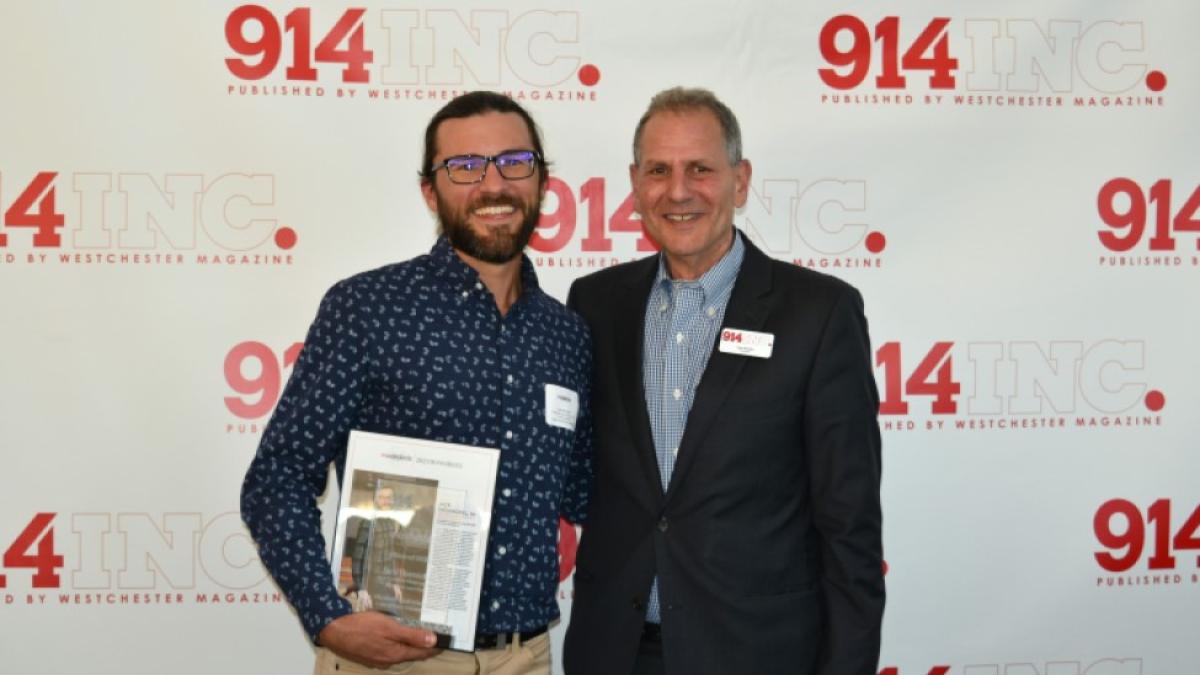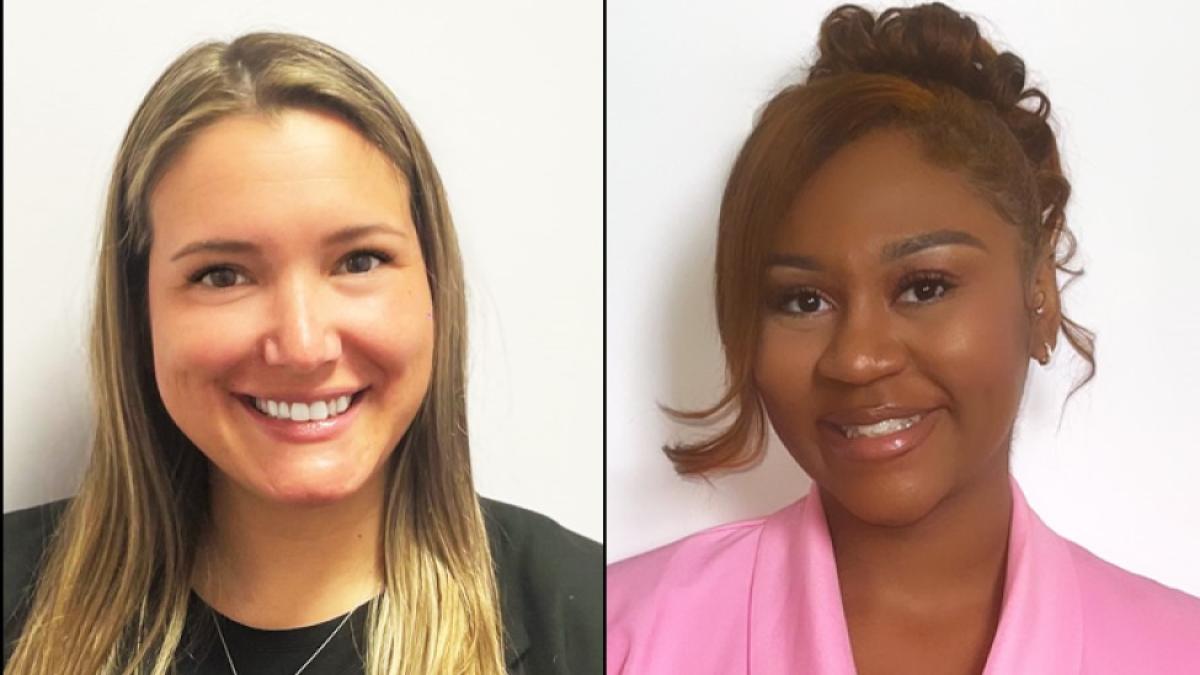
Pace University’s Angelina Porcello Named the DII Honda Award Finalist for Lacrosse
Angelina Porcello, a junior midfielder from Pace University, was named the DII Honda Athlete of the Year finalist for lacrosse as announced today by Executive Director Chris Voelz of THE Collegiate Women Sports Awards (CWSA) presented by Honda.

Porcello is Designated One of 11 Finalists for the Prestigious DII Honda Athlete of the Year.

Angelina Porcello, a junior midfielder from Pace University, was named the DII Honda Athlete of the Year finalist for lacrosse as announced today by Executive Director Chris Voelz of THE Collegiate Women Sports Awards (CWSA) presented by Honda.
Porcello is now designated one of 11 finalists for the prestigious DII Honda Athlete of the Year. This will be voted on at the end of the academic year by national balloting among 1,000 NCAA member schools as part of THE CWSA program, now in its 47th year.
“I am humbled and honored to be considered as a finalist for this award. I am grateful I was able to help contribute to an unforgettable season for my team. Winning the Division II Women’s lacrosse championship is a dream come true. Our team’s motto all year was “Why Not Us?” and that has been instilled in me this entire season. I credit my success to my teammates, coaches, and family. I would not be the player or person I am if it was not for them,” said Porcello.
Hailing from Eastchester, N.Y., Porcello led her team to its first national championship title in program history finishing the season at 21-2, including 17 wins over ranked opponents. It was also the first NCAA appearance for the Setters since the program started at Pace in 2015.
Most recently, Porcello was named the Intercollegiate Women’s Lacrosse Coaches Association (IWLCA) Player of the Year and earned IWLCA Midfielder of the Year honors. She was also named an IWLCA First Team All-American and All-Region First Team honoree while earning NCAA All-Tournament team honors after the Championship.
The midfielder scored 65 goals and 19 assists, placing fourth on the team with 84 points. On the defensive end, she led the team with 142 draw controls, 61 ground balls and 52 caused turnovers.
Off the field, she earned CSC Academic All-District honors.
“Angelina has had a tremendous impact on our team and is the most tenacious, gritty player I have had the opportunity to coach,” stated head coach Tricia Molfetta.
“Angelina was so invested in our team’s success this year and was the driving force in our first NCAA tournament appearance and the National Championship win. What makes Angelina so special is her energy and love for the game; she does everything with a huge smile on her face and that in turn loosens up all of her teammates. It is not often players can have both a relentless work ethic and the ability to laugh at themself, but Angelina has that combo and it’s what makes her such a great leader and a joy to coach. The moment is never too big for Angelina and she truly brings out the best in everyone around her, I can’t think of anyone more deserving!”
All Honda Sports nominees from DII and DIII become a finalist for the prestigious 2023 Honda Athlete of the Year in their respective divisions, presented in a live telecast on CBS Sports Network on June 26, 2023, at 5:30 p.m. ET/8:30 p.m. PT, in Los Angeles. The Honda Award finalists are recognized in 11 DII and DIII NCAA-sanctioned sports; cross country, basketball, field hockey, golf, lacrosse, soccer, softball, swimming & diving, tennis, volleyball, and track & field.
The CWSA, entering its 47th year, has honored the nation’s top NCAA women athletes for their superior athletic skills, leadership, academic excellence and eagerness to participate in community service. Since commencing its partnership in 1986, Honda has provided more than $3.4 million in institutional grants to the universities of the award winners and nominees to support women’s athletics programs.
About Honda Corporate Social Responsibility
For more than 60 years in the U.S., Honda has been committed to making positive contributions to the communities where its associates live and work. Honda’s mission is to create products and services that improve the lives of people while conducting its business in a sustainable manner and fostering a diverse and inclusive workplace. Accordingly, Honda believes in helping people reach their life’s potential through its focus on the areas of education, the environment, mobility, traffic safety and community. Learn more about Honda Corporate Social Responsibility.
About Pace University
Since 1906, Pace University has been transforming the lives of its diverse students—academically, professionally, and socioeconomically. With campuses in New York City and Westchester County, Pace offers bachelor, master, and doctoral degree programs to 13,600 students in its College of Health Professions, Dyson College of Arts and Sciences, Elisabeth Haub School of Law, Lubin School of Business, School of Education, and Seidenberg School of Computer Science and Information Systems.
In New Exhibit at Pace University Art Gallery, Six New York Artists Explore Identity via Textiles
Pace University Art Gallery is pleased to present “To Be Made Whole,” an exhibition featuring artists Elia Alba, Desmond Beach, Nicholas Cueva, Jeanne F. Jalandoni, Juan Sánchez, and Melissa Zexter who each unravel and reassemble identity via a synthesis of representational imagery and tactile textiles. The exhibit opens with a free public reception on Friday, June 2, from 5:00 p.m.—7:00 p.m. and was co-curated by Prof. Sarah Cunningham, the gallery director, and Francisco Maldonado ’23, who received a research assistantship from Pace’s Center for Undergraduate Research Experiences.

Pace University Art Gallery is pleased to present “To Be Made Whole,” an exhibition featuring artists Elia Alba, Desmond Beach, Nicholas Cueva, Jeanne F. Jalandoni, Juan Sánchez, and Melissa Zexter who each unravel and reassemble identity via a synthesis of representational imagery and tactile textiles. The exhibit opens with a free public reception on Friday, June 2, from 5:00 p.m.–7:00 p.m. and was co-curated by Prof. Sarah Cunningham, the gallery director, and Francisco Maldonado ’23, who received a research assistantship from Pace’s Center for Undergraduate Research Experiences.
The six artists in the exhibit fabricate fuller and more complex understandings of identity, culture, and history through their work. Maldonado notes, “In this show, we review art that combines representation and fabrication as a means to explore our collective identities and memory as well.” Their unique amalgamations are tangible forms of visual storytelling in which illustrative images are literally stitched or woven together to form complete narratives.
Jalandoni, for example, states that her paint and textile pieces “navigate the complexities and tangibility of being culturally Filipino American as a 2nd generation New Yorker,” reflecting that “the intricate process and performance of building a textile also has its references to journey-making and time-stamping.”
Similarly, Zexter elaborates that, “The thread acts as a connection between the person and myself or place that I have photographed. I always think of the photograph as something from the past and the thread as a reaction to the past and present.”
Additionally, inspired by her mother who immigrated to the US in 1950s and worked in the garment industry, Alba says, “Creating these works out of textiles pays tribute to the material creativity as an act of agency across diasporic communities.”
Meanwhile, Beach reimagines African-American quilts as shrouds. Haunted by the image of Michael Brown’s body lying uncared for in the street, he says, “My heart ached not only for the brutality that led to that moment but for the lack of tenderness in its aftermath…The quilt could serve as protection and allow him to maintain his dignity and respect as it blanketed him.”
By combining photo-related and fiber arts—both widely accessible quotidian processes that many viewers practice personally, the artists in “To Be Made Whole” simultaneously examine not how these materials function independently, but rather in conversation. At this generative intersection, they illuminate the ways identities are pieced together and demonstrate our collective capacity to be active participants in their creation.
This exhibit, which remains on view through Thursday, September 14, 2023, is made possible by the New York State Council on the Arts with the support of the Office of the Governor and the New York State Legislature. All of the gallery’s exhibits and events are free and open to the public. Regular gallery hours are Tuesday—Saturday from 12:30 p.m.–4:30 p.m. and by appointment.
Artist Biographies
- Born in the U.S. to parents who immigrated from the Dominican Republic, Elia Alba (she/her) is a multidisciplinary artist, whose practice is concerned with the social and political complexity of race, identity, and the collective community. She received her BA from Hunter College and completed the Whitney Museum Independent Study Program. She has exhibited throughout the U.S. and abroad including at the Studio Museum in Harlem, Stedelijk Museum, Amsterdam; Science Museum, London; Smithsonian Museum of Art, El Museo del Barrio, National Museum of Art, and Reina Sofía, Madrid. Awards include the Studio Museum in Harlem Artist-in Residency, Pollock-Krasner Foundation Grant, Joan Mitchell Foundation Grant, Anonymous Was A Woman Award, and the Latinx Artist Fellowship. Collections include the Smithsonian Museum of Art, El Museo del Barrio, and Lowe Art Museum. Her work has been reviewed in the New York Times, Art Forum, ArtNews, and Forbes. She was part of the curatorial team for El Museo del Barrio’s critically acclaimed exhibition, Estamos Bien: La Trienal 20/21. Her book, Elia Alba, The Supper Club (Hirmer, 2019) brings together artists, scholars, and performers of diasporic cultures, through photography, food, and dialogue to examine race and culture in the United States. She lives and works in the Bronx.
- Desmond Beach is a New York City artist and educator who explores race, identity, and social justice themes in his artistic practice. Through his work, Beach aims to transform the tragedies of the transatlantic slave trade and the Jim Crow America South into a celebration of fully living Black life. Beach has an extensive background in teaching and has served as a visiting lecturer/artist at various institutions, including Coppin State University, Emerson College, Morgan State University, and College of the Atlantic. He has also been a fellow at the Fine Arts Work Center in Provincetown and Skidmore College, among others. He has exhibited at museums including The Phillips Collection (DC), Katonah Museum of Art (NY), the Neuberger Museum of Art (NY), and The Contemporary Museum (MD) and had recent solo shows at Delaware Valley Arts Alliance (NY), Chesapeake Gallery (MD), and Evanston Art Center (IL). His educational background includes an MFA from the Rinehart School of Sculpture at the Maryland Institute College of Art (MICA), where he also earned his BFA. Currently, Beach is a PhD candidate in Creative Practice at the University of Plymouth in England.
- Nicholas Cueva (b. Dana Point, CA, 1983) received his MFA from the School of the Art Institute of Chicago in 2011 and has lived in New York since. He has exhibited widely throughout the United States, including group exhibitions at the Torrance Museum of Art (CA) and Ess Ef Eff (Brooklyn, NY) and solo exhibitions at MPTSN and Dreamboat (Chicago, IL), among others. The Sex Wax paintings on fabric draw from his upbringing in the Calvary Chapel Surfing Association, a self-described “surfing church.” His work examines surfing from a personal perspective, presenting it as a nexus of emotional resonances and fatalistic paradoxes, all the while exploring its intrinsically dynamic formal qualities. Born with Truncus Arteriosus, a rare congenital heart defect that left him physically weak, he was rarely able to surf and felt like an outsider looking in.
- Jeanne F. Jalandoni is a painter and textile artist, based in NYC. Her work navigates Filipino American cultural identity through personal research and experiences as a second generation American. She uses national symbols such as the carabao, bangus to express characteristics she associates with her biculturalism, in an attempt to redefine the Filipino American narrative. Jalandoni received her BFA in Studio Art from NYU, and had solo shows with Taymour Grahne Projects and Real Art Ways. She exhibited in group shows with Jeffrey Deitch, Ben Brown Fine Arts, Textile Arts Center, and Asia Society Texas Center. Jalandoni was an artist-in-residence at 36 Chase & Barns (2018), the Textile Arts Center (2021), and ChaNorth Artist Residency (2022). Jeanne is a recipient of the Real Art Award, and the Lower Manhattan Cultural Council Creative Engagement Grant (2019).
- Juan Sánchez was born in Brooklyn, New York, in 1954 to working class immigrant parents. He earned a BFA from The Cooper Union School of Art and a MFA from Rutgers. Maintaining an activist stance for over forty-five years, he establishes his art as an arena of creative and political inquiry that encompasses the individual, family, the communities with which he engages, and the world at large. Sánchez has received many grants and fellowships including the John Simon Guggenheim Foundation, the Joan Mitchell Foundation, the New York Foundation for the Arts, the Pollock-Krasner Foundation, the National Endowment for the Arts, and the CUAA Augustus Saint Gaulden Achievement in the Visual Arts Award. He has exhibited internationally including major solo exhibitions at BRIC Arts/Media House, Zoellner Arts Center, MoMA PS1 Contemporary Art Center, Bronx Museum of the Arts, Jersey City Museum, and EXIT ART. His art is in the permanent collections of the Metropolitan Museum of Art, the Whitney Museum of American Art, the Museum of Modern Art, El Museo del Barrio, the Smithsonian Museum of American Art, El Instituto de Cultura Puertorriqueña, and El Centro Wilfredo Lam in Cuba. Sánchez is Professor of Art at Hunter College.
- Melissa Zexter was born in Rhode Island and currently lives in Brooklyn, New York. She holds a BFA in Photography from the Rhode Island School of Design and an MFA from New York University. Zexter has exhibited throughout the United States and internationally including shows at Muriel Guepin Gallery (NY), The Triennial Design Museum in Milan, Italy, The Fuller Craft Museum (MA), Robert Mann Gallery (NY), and the Bronx Museum of the Arts. Her work has been published and reviewed in numerous publications including AfterImage, ELEPHANT, Juxtapoz, The New York Times, The Boston Herald, The New Yorker, Art New England, BUST, and New York Magazine. Zexter combines embroidery with photography. She sews by hand directly onto photographs she has taken, combining a traditional practical skill, embroidery with a modern and mass reproducible process, photography. The artist’s fundamental concern is to explore the photograph's material status as three-dimensional object as well as to examine issues of identity, memory and technology.
About the Pace University Art Gallery
Founded with the conviction that art is integral to society, the Pace University Art Gallery is a creative laboratory and exhibition space that supports innovation and exploration for both artists and viewers. Open to students, staff, and faculty from across the Pace campuses and, equally, to the Lower Manhattan community and visitors from around the world, the Art Gallery encourages personal investigation and critical dialogue via thought-provoking contemporary art exhibits and public programming. Enhancing the Art Department's Bachelor of Arts and Bachelor of Fine Arts programs, the Art Gallery offers students real-world opportunities to exhibit their own art and to work directly with professional artists to install and promote exhibitions. All exhibits and events are free and open to the public.
About Dyson College of Arts and Sciences
Pace University’s liberal arts college, Dyson College, offers more than 50 programs, spanning the arts and humanities, natural sciences, social sciences, and pre-professional programs (including pre-medicine, pre-veterinary, and pre-law), as well as many courses that fulfill core curriculum requirements. The College offers access to numerous opportunities for internships, cooperative education and other hands-on learning experiences that complement in-class learning in preparing graduates for career and graduate/professional education choices.
About Pace University
Since 1906, Pace University has been transforming the lives of its diverse students—academically, professionally, and socioeconomically. With campuses in New York City and Westchester County, Pace offers bachelor, master, and doctoral degree programs to 13,600 students in its College of Health Professions, Dyson College of Arts and Sciences, Elisabeth Haub School of Law, Lubin School of Business, School of Education, and Seidenberg School of Computer Science and Information Systems.
Careers Now: Advice For Job Seekers Concerned About Salary Negotiations
Lisa Bertrand, assistant director of admissions at Pace University School of Law, often counsels young professionals seeking salary advice. What does she tell them? “The old adage is still true: Do not put out the first number,” says Bertrand. “Ask what the salary range is for the role. Depending on what state you’re in, employers are required to disclose salary information in job postings."
The Proposed UN Cybercrime Treaty and a Path Forward
Professor John Bandler pens an op-ed in the New York Law Journal about Russia’s proposed and controversial United Nations Treaty on Cybercrime and a path forward.
As Gen Z Emerges, Law Grads Urged To Do The Unexpected
That was the overarching advice from U.S. Sen. Elizabeth Warren. The Massachusetts Democrat urged graduates at the Elisabeth Haub School of Law at Pace University to avoid what she called the obvious and expected path after commencement: a steady and dependable job at a law firm. "Law firms will pave a road from here to a nice office, in a nice building, in a nice area," she said. "But think about doing something scary."
The Latest On New Restaurants, Food Trends, And Dining Options In The Lower Hudson Valley.
In other film news, Pace University’s documentary film team, PaceDocs, recently premiered "For the Love of Food: Pour l’amour de la Cuisine" which focuses on the slow food movement. The movement began in Europe during the 1980s to preserve the culture of eating locally and combating the popularization of fast food.

Westchester Magazine’s 914INC. Honors Food and Farm Business Law Clinic Staff Attorney, Jack Hornickel
Jack Hornickel, a Staff Attorney with the Elisabeth Haub School of Law at Pace University’s Food and Farm Business Law Clinic, has been recognized with the 2023 Wunderkinds Award by Westchester Magazine’s 914INC.

Jack Hornickel, a Staff Attorney with the Elisabeth Haub School of Law at Pace University’s Food and Farm Business Law Clinic, has been recognized with the 2023 Wunderkinds Award by Westchester Magazine’s 914INC. Hornickel joins an elite list of 24 business professionals under the age of 35 who were selected for generating change across a spectrum of industries in Westchester County, including Haub Law alumna and former staff attorney at the Pace Women’s Justice Center, Alyson Kuritzky ‘14. The award was presented on May 25, 2023, at a reception held at the Mamaroneck Beach & Yacht Club attended by supporters from across the region.
The 2023 Wunderkinds Award recipients were featured in a special issue of 914INC. Magazine in May/June. The article on Hornickel notes that he has provided countless hours of pro bono legal services with the Food and Farm Business Law Clinic, inspired by his deep-seated passion for making the Hudson Valley a better place and his constant commitment to supporting small farmers. “Jack is as innovative, passionate, and dedicated as they come,” says Jonathan Brown, Professor of Law for Designated Project or Service and Director, Food and Farm Business Law Clinic. “Jack joined the Food and Farm Business Law Clinic team in 2021 as our first Staff Attorney and we have thrived with the addition of him to our team. Not only is he an excellent lawyer, but he also has a deep understanding of agricultural issues that makes him a trusted advisor and resource for farmers in our region. Our students and clients are fortunate to work with him.”
At the Food and Farm Business Law Clinic, Jack provides transactional legal services to small farms, food and beverage entrepreneurs, and nonprofit organizations seeking to improve the food system. He focuses his services on intergenerational farm succession, land use, conservation, and land access. Previously Jack represented small farmers and provided business planning services through the GrowNYC Farmer Assistance Program; these services supported farmers selling in the Greenmarket, the largest network of urban farmers markets in the country and a vital food resource for New Yorkers.
“I take great pride in working with regional farmers,” said Hornickel. “These are our most essential environmental stewards, bold entrepreneurs, and pillars of rural community. The more we improve conditions for New York State agriculture, the greater food security and environmental quality we can all enjoy. Working with the Food and Farm Business Law Clinic provides me with a platform to advance this mission while training the next generation of legal minds.”
Two Haub Law Students Selected to Receive Westchester Women’s Bar Association Foundation Scholarships
The Westchester Women's Bar Association Foundation (WWBAF) has awarded scholarships to two students at the Elisabeth Haub School of Law at Pace University.

The Westchester Women's Bar Association Foundation (WWBAF) has awarded scholarships to two students at the Elisabeth Haub School of Law at Pace University.
The Justice Sondra M. Miller Scholarship is a scholarship in honor of WWBA founding member and past President Hon. Sondra M. Miller. The WWBA Foundation evaluates scholarship applicants on a number of criteria: community and/or public service, clinic and internship involvement, life balance, academic record, personal adversity in pursuit of a legal education and intent to make future contributions to Westchester County. This year the WWBAF decided to award two Justice Sondra M. Miller Scholarships, one to each Brittany Miraldi and Shelbire Pierre Paul.
“We receive a large number of high caliber applicants each year,” said Susan Corcoran, President of the WWBAF. “My personal lens that I use in my evaluation of applicants is to try to think about the values of the WWBA and Judge Miller, whose life work is the embodiment of the WWBAF mission. I review how the candidate in so many different ways has excelled to make a difference in the classroom and community at large.”
This year, the WWBAF are awarding two Justice Sondra Miller $5000 scholarship awards given its fundraising and the amazing accomplishments of the winners. “Both Brittany Miraldi and Shelbire Pierre Paul exhibit an extraordinary passion to help our community and have already made a positive impact in the legal field while balancing full-time employment,” said Corcoran. “Shelbire, who graduated this year, is the consummate mentor, leader, and advocate, who has achieved an amazing number of stand-out accomplishments in her law school experience that ‘….promote the fair and equal treatment of all people in society, the workplace, schools and court system.’ Brittany, attending Haub Law as a part-time Flex student, works for Hope’s Door, a non-profit serving victims of domestic violence, and has demonstrated an equally extraordinary track record of using whatever little free time she has to mentor others, assist other non-profits, and excel in the classroom. We could not ask for two more perfect candidates to represent the values and life work of our own WWBAF member Justice Sondra Miller.”
Brittany Miraldi, scholarship recipient, was overwhelmed with gratitude when she was notified she received this prestigious award. “Justice Miller is the epitome of shattering the glass ceiling and her many achievements and contributions to the legal community are inspiring,” said Brittany. “I am humbly aware that my place at the table in the legal community did not always exist, and because of women like Justice Miller, it now does. I am so fortunate to be connected to so many incredible people in this profession through the WWBA, and I believe strongly in the power of mentorship. I look forward to the ability to give back to my community and the next budding generation of lawyers.”
Recent Haub Law graduate and scholarship recipient, Shelbire Pierre Paul was drawn to apply for this scholarship because she admires the work the Foundation and Justice Sondra Miller have done in the community and the constant dedication to supporting women in the legal field. “Justice Sondra Miller has laid the foundation for what it means to be a successful and hardworking woman, which I work hard to embody,” said Shelbire. “I hope to accomplish many great things as Justice Sondra Miller has, and I look forward to furthering my career as an Assistant District Attorney in Westchester County this Fall. I am honored and grateful to be a recipient this year.”
Going for It—No Matter What
Alphur "Slim" Willock ‘19, ‘23 knows that dedication in the face of obstacles is what it takes to get ahead. After the death of his wife, he took on the responsibility of caring for his six children while working full-time. Slim was able to fit not one, but two, online degree programs into his life—a BS in Information Systems and now an MS in Information Technology.


Alphur "Slim" Willock '19, '23 knows that dedication in the face of obstacles is what it takes to get ahead. After the death of his wife, he took on the responsibility of caring for his six children while working full-time. Slim was able to fit not one, but two, online degree programs into his life—a BS in Information Systems and now an MS in Information Technology.
There is no doubt that every parent is a superhero. However, it takes a different kind of super skill to accomplish juggling a full-time job, a large family, and full-time education. Alphur “Slim” Willock ’19, ’23, is clearly up to the challenge.
Slim’s worked at Verizon for nearly thirty years and is a proud father of three sons and three daughters, raising them himself after their mom passed away during childbirth. Both full-time jobs. Many people in his position would be intimidated to invest so much—both time and money—into their education when they already have so much on their plate, but not Slim. Slim was able to make his superhero lifestyle and desire to pursue higher education work for him.
Although his determined attitude would fool you, he admits that being a working parent and a student is anything but easy: “As a father that has kids and is working full-time, Pace’s online degree programs really worked into my schedule.” Slim tried in-classroom learning, but the logistics of making it to a classroom was a real challenge. “I would be leaving from work and driving to Manhattan to look for parking just to make it to my six o’ clock class,” he says. It just wasn’t working as well as it could’ve been. So, he went virtual—completing his BS in Information Systems online through Pace’s Seidenberg School of Computer Science and Information Systems.
After taking the dive into online learning, he realized that online learning is not so very different from going back to school in-person. He was able to make connections with his peers and his professors, and also discovered that online learning made it easier for him to balance his commitments.
There were a lot of different stressors that were added on to the fact that I’m working full-time, and I still have to go home and cook dinner. Online school helped tremendously for me,” he says. “I could concentrate on my family and at the same time I could still concentrate on my schoolwork.
One thing that’s important to Slim is to make sure that others understand that an online degree program isn’t any different in terms of value compared to an in-person program. It’s the same curriculum, the same professors, and the same work required to earn the degree. “Online school scared me because I thought it wasn’t the same degree, and you get a certificate that says ‘online,’” he laughs. “But that isn’t true! People hear so many different things about online school and it scares them.”
By the time the COVID-19 pandemic turned the world upside down, Slim was already an old pro at virtual living and learning. So, it made sense for him to return to the virtual classroom to tackle his next big challenge: a master’s degree. And so far, so good. He’s made a lot of great connections in the classroom, is building relationships with faculty, and making friends.
“Some of my classmates are my best friends—I haven’t ‘met’ them yet, but we’re really good friends," he says.
Slim’s persistence and tenacity is not only inspired by his own children, but by the former Verizon chairman and CEO Ivan G. Seidenberg ’81, for whom the Seidenberg School of Computer Science and Information Systems is named. Slim explains that Seidenberg is “an inspiration who set the blueprint for a role model by donating to create a program at the school he graduated from.”
Slim serves as an inspiration to his friends and family (and Oprah, too! Yes, that Oprah), often encouraging others to follow the same path. In talking about his experience, he laughs and says “A lot of people, after I told them I got my degree, would say ‘Slim, if you can do it, with your situation and with kids, I should have no excuses!’”
Chevron Doctrine: Not Dead Yet
“I wouldn’t be surprised if the justices limit Chevron, as opposed to overruling it,” said Katrina Kuh, a law professor at Pace University.

